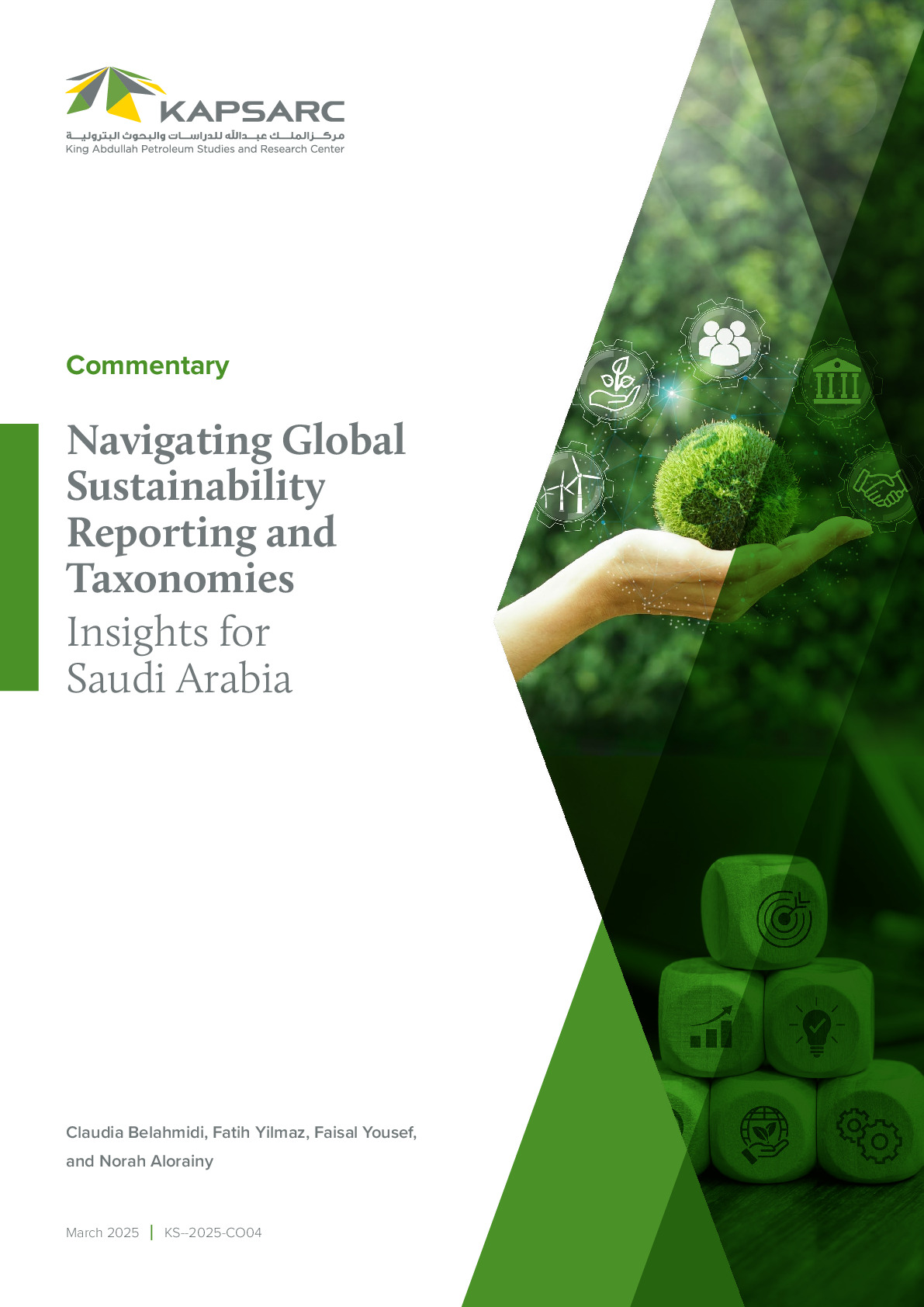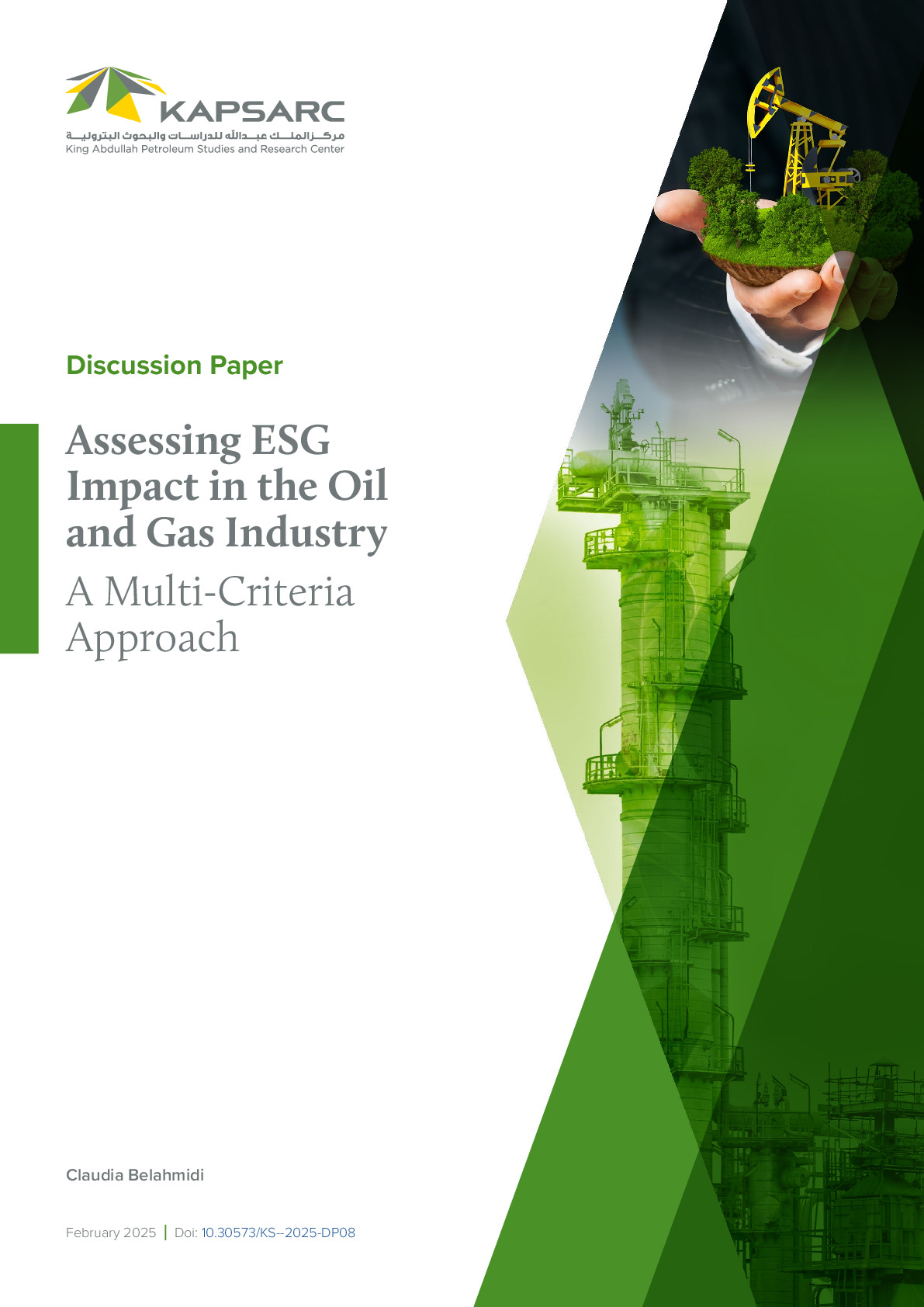The paper explores the evolution of ESG reporting frameworks and taxonomies, focusing on their implications for Saudi Arabia. It discusses the challenges posed by global ESG practices, such as mandatory Scope 3 emissions reporting, materiality standards, and carbon management technologies. The paper highlights Saudi Arabia’s current reporting practices and guidelines, as well as the benefits of alignment with international standards, such as the ISSB and EU frameworks. It recommends developing a national support infrastructure, tailored to the Saudi context, to enhance global competitiveness and sustainability.

Senior Fellow- Oil & Gas
Claudia Belahmidi is a Senior Fellow in the Oil and Gas program, with a focus on the impact of ESG…
Claudia Belahmidi is a Senior Fellow in the Oil and Gas program, with a focus on the impact of ESG topics and Climate Finance on the hydrocarbon industry. Claudia has more than 13 years of research and industry experience analyzing energy markets, policies, and companies. Before joining KAPSARC, Claudia worked at S&P Global as an Equity and Strategy Analyst in the Commodity Insights Team, providing flagship and bespoke insights and analysis on a number of integrated oil companies as well as European independent producers. Previously, Claudia spent three years as an energy research analyst (Northern Europe and North America) with IHS. She holds a B.A. in Political Science and an M.A. in International Affairs from the Fletcher School, Tufts University.
Expertise
- Oil & Gas ESG
- Capital Costs
- Sustainable Finance
Publications See all Claudia Belahmidi’s publications

Navigating Global Sustainability Reporting and Taxonomies: Insights for Saudi Arabia
The paper explores the evolution of ESG reporting frameworks and taxonomies, focusing on their implications…
21st March 2025
Assessing ESG Impact in the Oil and Gas Industry: A Multi-Criteria Approach
The paper explores the evolution of ESG reporting frameworks and taxonomies, focusing on their implications…
24th February 2025



